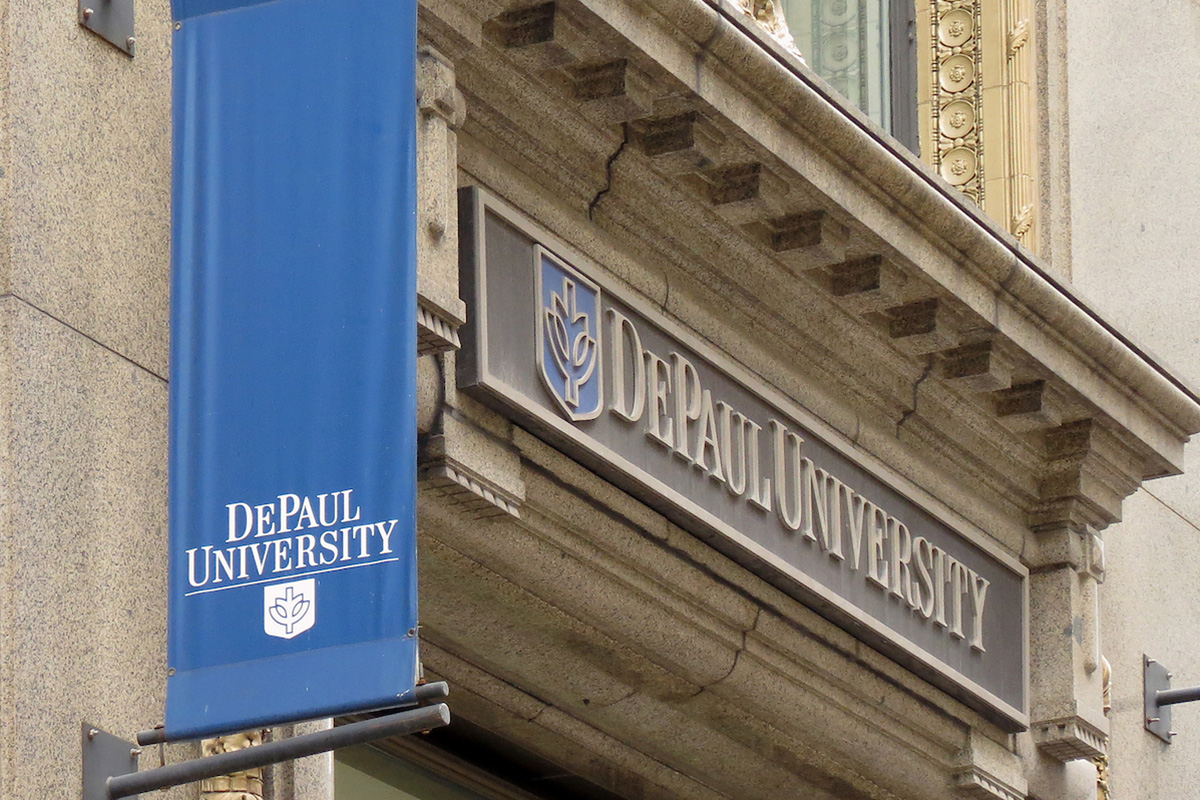 (DePaul University/Jamie Moncrief)
(DePaul University/Jamie Moncrief)At its March 5 meeting, DePaul's Board of Trustees approved a $576 million budget for fiscal year 2020-21 that will help ensure the continuing viability of the university's Vincentian mission and commitment to student success. The budget was unanimously recommended to the board by the Strategic Resource Allocation Committee, or SRAC, and DePaul's president, A. Gabriel Esteban, Ph.D.
“While declining enrollment continues to pose budget challenges, the decisions considered by SRAC were not easy,” Dr. Esteban says. “I thank the committee’s members for their willingness to engage in these important conversations and for their thoughtful recommendations.”
Dr. Esteban reviewed DePaul’s enrollment trends and shared proposed budget elements last month at a Leadership Town Hall. The budget approved by trustees, which will take effect July 1, reflects the effect of the enrollment declines as well as the need to invest in new academic programs and to continue to manage costs.
“Multiple new programs are at various stages of development. In addition, new delivery methods and infrastructure are being implemented to provide easy access for our students,” says Salma Ghanem, Interim Provost.
The budget calls for expense reductions and will not include a merit increase pool, which means there will be no annual raises for faculty, staff and administrators next fiscal year. DePaul will maintain the current comprehensive employee benefits package.
SRAC recommended tuition pricing increases for new undergraduates, with lower increases for continuing and graduate students. The institutional financial aid pool will increase nearly 5.1 percent over the previous year's budget to $266.4 million.
DePaul’s total student enrollment hit an all-time high in 2011 and has declined modestly each year since then – affected by increased competition among area universities and the declining number of high school graduates, particularly in the Midwest. Net tuition revenue also has declined slightly for three years. While the university is taking steps to attract more out of state and transfer students and recently welcomed its largest freshman class yet, enrollment challenges are continuing to affect DePaul’s budget.
The students who registered in fall quarter 2019 were two percent below the budgeted headcount target and 373 fewer than last year. Data from the winter quarter 2020 census showed another enrollment shortfall below the budgeted headcount target.
To address enrollment declines, the university has added out-of-state recruiters and is introducing more programs to further increase retention. The university also will continue to invest in new programs and external partnerships.
For several years, the university has trimmed expenses to align with revenue projections while simultaneously investing in strategies designed to remain competitive in pursuing enrollment growth goals and to fulfill our strategic plan. In the next fiscal year, additional expense reductions will be necessary for the university to ensure a strong financial future.
“The university will face an $11 million budget gap as the next fiscal year approaches,” says Jeff Bethke, executive vice president and chief financial officer. “Senior leaders have been asked to study all options for closing this gap.”
In the coming months, the university will be considering budget reductions that will focus on sustaining our mission and serving students—today, tomorrow and for generations to come. Have an idea that could help to close the budget gap? Share your thoughts in the online feedback form we are piloting. The form can be found here. Your feedback will be acknowledged and shared with the appropriate leader at DePaul for consideration.
“While these decisions and reductions are expected to be difficult, they are necessary as DePaul adapts to higher education's changing landscape," Dr. Esteban says.
SRAC members are appointed by the president, including representatives who are recommended by Staff and Faculty Councils and two dean appointments who are recommended by the provost. This year's voting members of SRAC included:
- Jeff Bethke, executive vice president and SRAC chair
- Erin Berkowitz, Staff Council president
- Gisselle Cervantes, Student Government Association president
- Salma Ghanem, interim provost
- Scott Paeth, Faculty Council president
- Sherri Sidler, vice president for finance and controller
- Guillermo Vásquez de Velasco, dean, College of Liberal Arts and Social Sciences
- Michaela Winchatz, Faculty Council representative
- Paul Zionts, dean, College of Education